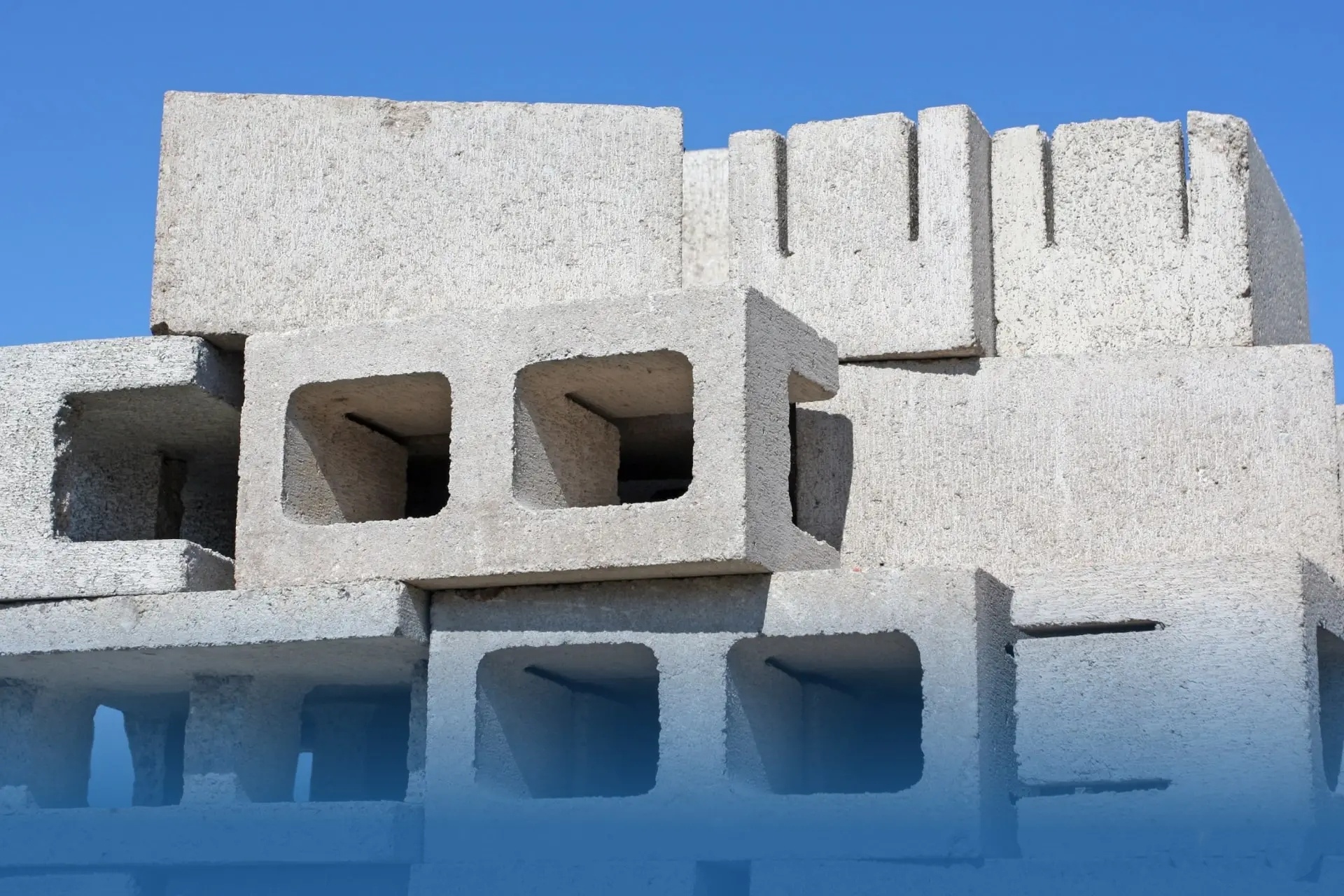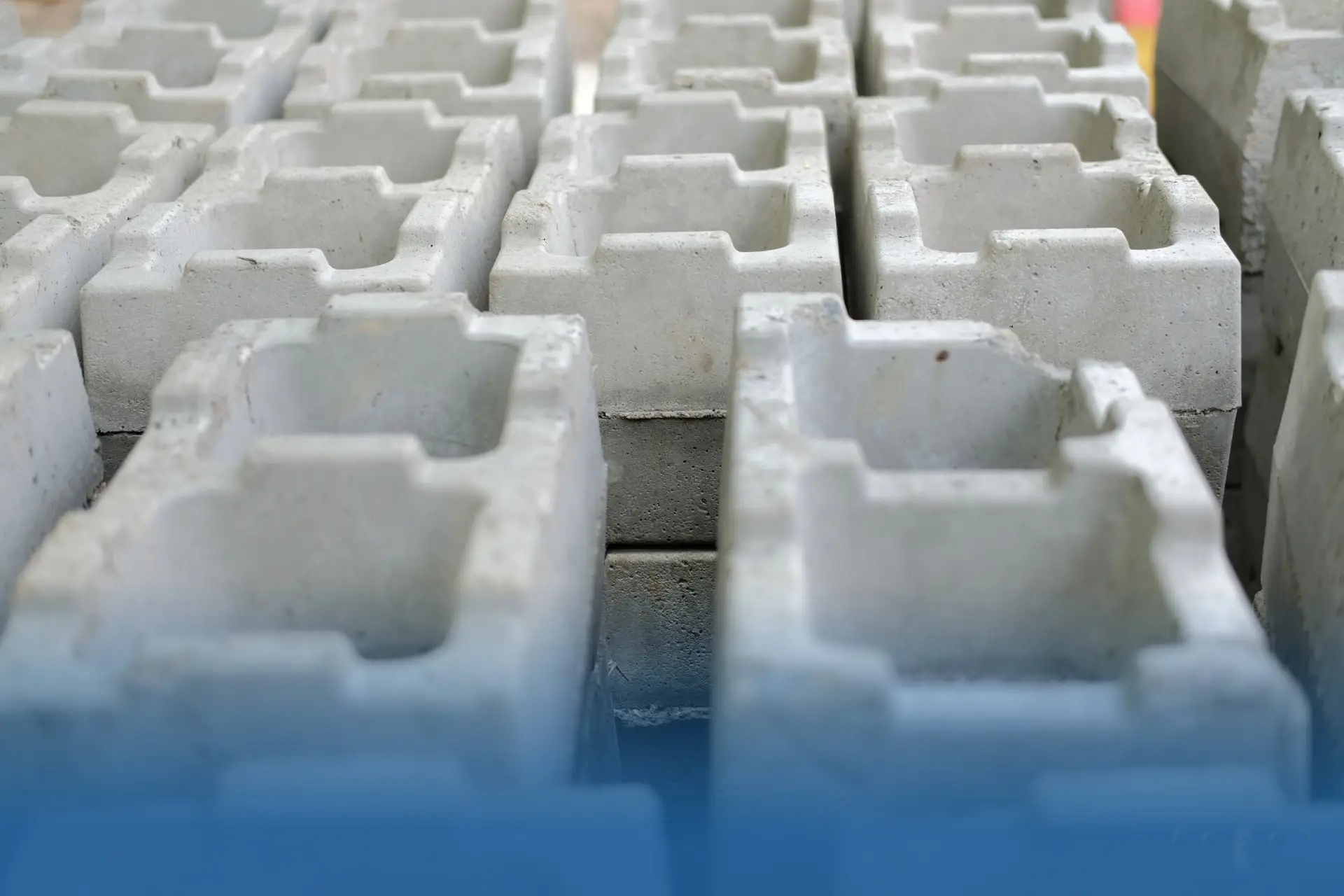While terms like “concrete” and “cement” may be used interchangeably, deciding whether you’ll use a cement block or concrete block for your next project is not as easy as you may think. Both are made with a cement base and about 65–75% aggregates; however, each has unique properties that any homeowner or contractor should know. If you want to understand the difference between a cement block and concrete block, you've come to the right place.

![]() Concrete blocks, also known as concrete masonry units (CMU), are an integral piece of any construction project. The blocks are made from a blend of cement and aggregates (sand, gravel, crushed stone), and poured into molds to be cured. They offer a robust and fire-resistant option that you can use for residential and commercial construction. Moreover, many contractors use concrete blocks for their long lifespan and diverse functionality.
Concrete blocks, also known as concrete masonry units (CMU), are an integral piece of any construction project. The blocks are made from a blend of cement and aggregates (sand, gravel, crushed stone), and poured into molds to be cured. They offer a robust and fire-resistant option that you can use for residential and commercial construction. Moreover, many contractors use concrete blocks for their long lifespan and diverse functionality.
What makes concrete blocks different from cement blocks is their composition; concrete blocks use crushed stone and fine sand in their aggregates, while cement blocks use fly ash. The crushed stone is gathered from mining, gives the block immediate strength, and allows the block to harden as it ages.
However, gathering this crushed stone impacts the environment when harvested. If you want to make the sustainable choice when choosing between a cement block vs. concrete block, cement is more sustainable.
The biggest benefit of using CMUs is their versatility. Concrete blocks can be sourced in many varieties, including solid blocks, hollow blocks, and specialty blocks to fit your construction needs. They can be used as both load-bearing walls and non-load-bearing concrete walls, as well as foundations and partitions.

Cement blocks share many similarities with concrete blocks — both are extremely durable, made from cement, and have a high density. Whereas concrete blocks contain crushed stone aggregates, cement blocks are typically made from fly ash aggregates. This component is a natural by-product of the industrial process, which makes it a more environmentally sustainable alternative to crushed stone.
Cement is a great alternative to concrete as a building block for constructing walls and foundations. Although concrete blocks are stronger laterally, cement blocks have a high vertical tensile strength that enables them to bear vertical loads.